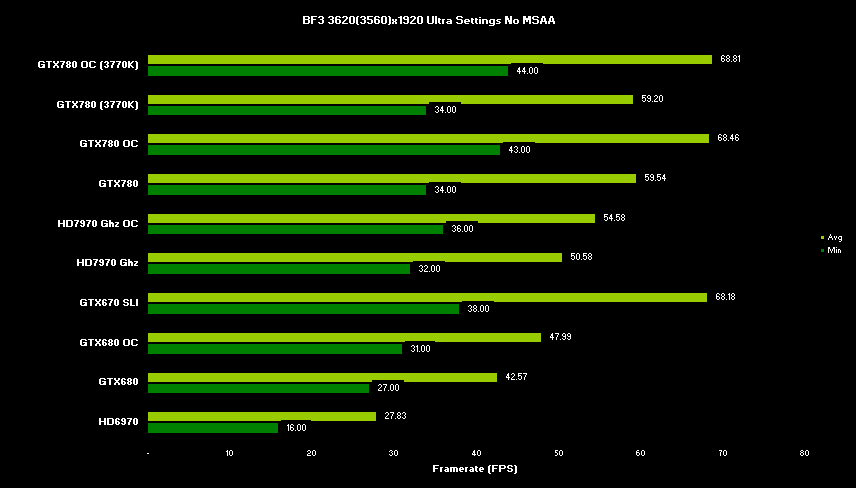If you think it's a delusion then you clearly don't understand how graphics cards work.
I do, I'm just combining that understanding with experience and history in order to form a reasoned prediction.
You also don't seem to know what delusion means either.
I do hence my correct usage of the word but for ref: "An idiosyncratic belief or impression that is firmly maintained despite being contradicted by what is generally accepted as reality" see.
The bottom line is that in the future, you will have to turn down more settings for a 6XX card than you would on a 79XX to get a playable frame rate, this is how the situation is now, so on what planet is it a delusion?
No you will not, you seem to think that just because the scenario exists now at insane resolutions that it will translate to standard resolutions down the line but this is not how it works it's how you would expect it to work, and that is the delusion. In reality however, history has shown that whenever you have GPU's with similar GPU performance that by the time you would have to turn down the effects due to memory throughput you will have already had to turn them down due to the GPU running out of grunt.
(NB: that's historically correct for GPU's of similar power when one has decent memory throughput and the other better, not when one of them has crippled throughput a la the GDDR3 version of a GDDR5 card.)
Last edited:




 I would love it if my single 780 was faster than 7970 CF! Money well spent then....
I would love it if my single 780 was faster than 7970 CF! Money well spent then.... 